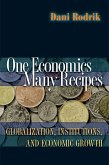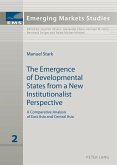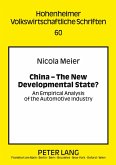Globalization facilitates China's emergence and places Taiwan economy under China's influence. Empirical data confirm that Taiwan's structural weakness compromises its autonomy. Sino-US economic interdependence confines the US from adopting any strategy to protect Taiwan's autonomy. China is the largest recipient of Taiwanese investment. Flow-on effects determine China's indispensability to Taiwan. Yet, in fear of losing its autonomy to China, Taiwan tries to control the cross-Strait economic exchanges but fails. As Taiwan seeks for independence but China insists on unification, the ideological fight between the two sides is a zero-sum game. The US involvement maintains the cross-Strait status quo, but China's rise will disrupt the balance. Without political concessions, Taiwan will always live under the Chinese threat. Yet, if the US adopts a Trojan-Horse Strategy, Taiwan will have a chance to oversee China's development.
Bitte wählen Sie Ihr Anliegen aus.
Rechnungen
Retourenschein anfordern
Bestellstatus
Storno








